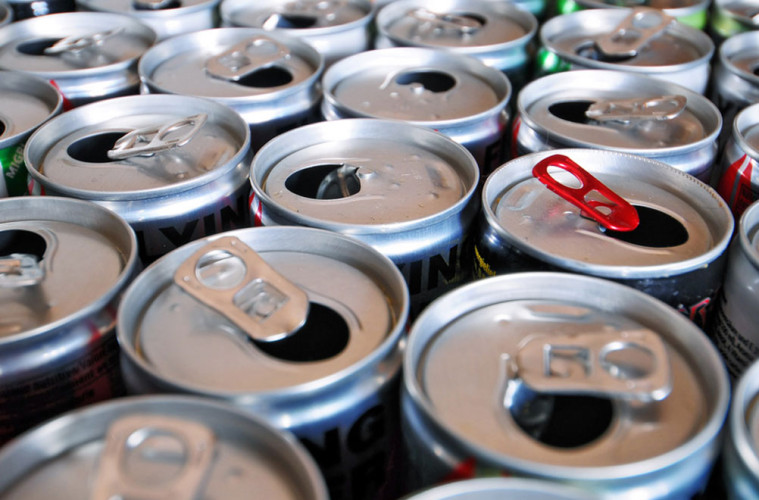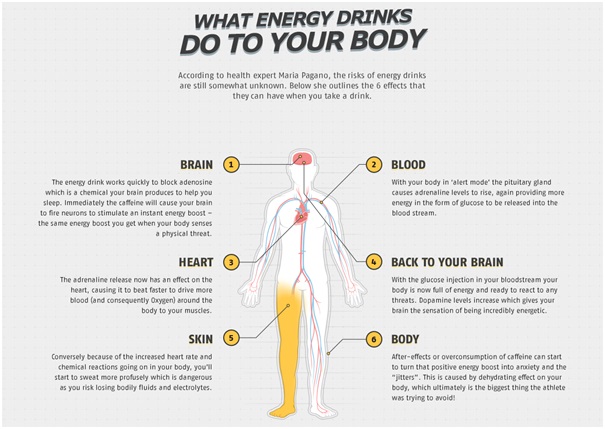With high levels of caffeine and the promise of an instant sugar buzz, it’s not surprising that energy drinks are becoming increasingly popular with athletes, students cramming for exams and anyone looking for a quick pick-me-up. But despite a growing market thirsty for the advantage the higher levels of alertness and recovery bring, there are still big question marks over the possible side effects and long term implications of regularly consuming energy drinks. Here are the arguments for and against…
Sports Hydration
What do Energy Drinks do to Your Body?
Energy drinks are a complex cocktail of ingredients,which specifically target hormones produced in your body. Although many of the risks that energy drinks could pose remain unknown, this infographic highlights some key physical areas that are affected.
Essentially, stimulants such as caffeine trigger your fight or flight response, manipulating your pituitary gland and producing a sudden surge in adrenaline. This adrenaline causes your heart-rate to rise, driving more and more oxygen into your blood and around your muscles. This, alongside increased levels of glucose in your bloodstream, means you now have the energy boost required to take on any nearby threat, game of rugby, exam or gym session. It’s an entirely artificial way of producing a naturally occurring response.
Is it Worth the Risk?
There’s much debate over just how healthy energy drinks are. Nobody is saying that they don’t improve performance; they almost certainly do. But the problem comes when they are used in excess, or over a long period of time.
There are the small details, such as the fact that often energy drinks contain mountains of sugar, which is never going to have a positive effect on your waistline. Even the sugar-free versions are full of artificial sweeteners, which themselves have been linked to a number of conditions. Besides, how can something with no calories give you energy? This is where the common misconception arises. Often energy drinks don’t provide you with energy at all, but a cocktail of stimulants which only give you a short-term boost. For this reason they are safest used in moderation, and only when you really need it. A number of common ingredients come with health risks. A caffeine overdose can cause heart palpitations and anxiety and Creatine has been linked with agitation and insomnia. These kinds of side-effects are widespread but not widely known. The truth is, unless you’re a high level athlete, it’s best to steer clear.
- Subscribe to The Student Pocket Guide for exclusive competitions, deals, discounts, tips and advice!
- Read The Student Pocket Guide.





